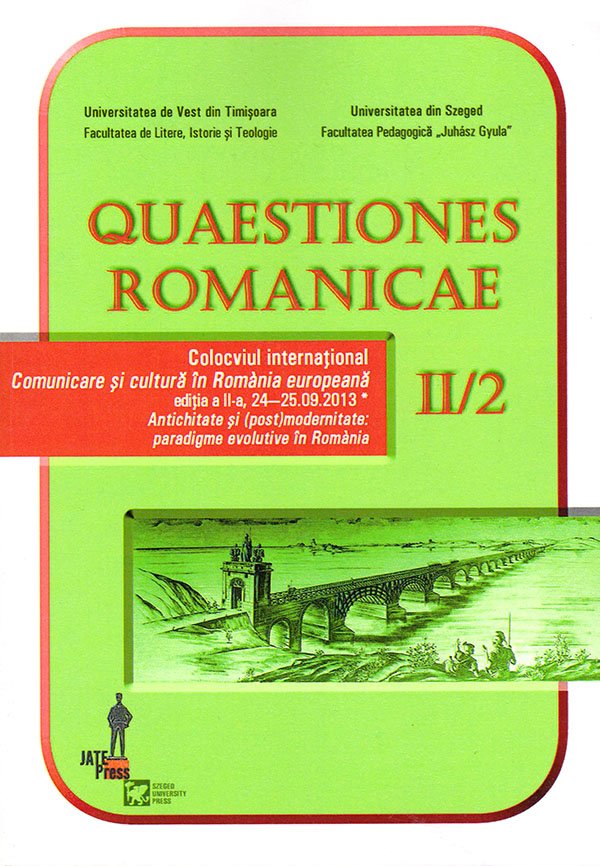Câteva observaţii privind critica traducerii româneşti în secolul al XIX-lea
Abstract: (Aspects Regarding 19th Century Romanian Translation Criticism) As a direct result of Enlightenment thought, a vast program of cultural modernization began in the Romanian principalities during the 19th century. The book, especially the translated one, turned into the main instrument of cultural propagation for the general public. The translations from French, at the beginning using books already translated into a different language, afterwards using the original French, increased in number. During the first half of the century, the translators realized the Romanian versions, which were, mostly, moralizing works, textbooks and science books vulgarisations. For the first time in the history of the Romanian translations, the supremacy of religious books ended in favour of profane books. During the second half of the 19th century, the translations repertoire grew substantially, in parallel with the increase of the people’s degree of alphabetization and the development of several means of communication. The spreading of the translation phenomenon in the Romanian society, two centuries ago, provoked critical attitudes from both the non-translators and the translators themselves. In this paper, our goal is to emphasize the most significant aspects in terms of the translation criticism in the 19th century, such as viewed in the newspapers’ pages or in the forewords accompanying the translations.
Keywords: translators, discourse, language, public, modernisation.
Rezumat: Sub influenţa ideilor iluministe, în secolul al XIX-lea, începe în Principatele Române un vast program de modernizare culturală. Cartea, în special cea tradusă, devine principalul instrument de propagare a culturii în rândul maselor. Traducerile din limba franceză, la început prin intermediar şi apoi directe, devin tot mai numeroase. În prima jumătate a secolului, sunt transpuse în română mai ales lucrări cu caracter moralizator, manuale şi cărţi de vulgarizare a ştiinţei. Este pentru prima dată în istoria traducerilor româneşti când supremaţia textelor religioase ia sfârşit în beneficiul celor cu caracter laic. În a doua jumătate a secolului, repertoriul traducerilor se îmbogăţeşte substanţial, în paralel cu creşterea gradului de alfabetizare a populaţiei şi dezvoltarea mijloacelor de comunicare. Amploarea fenomenului traductiv în societatea românească de acum două secole determină luări de poziţie critice, atât din partea non-traducătorilor, cât şi a traducătorilor înşişi. În acest articol, ne propunem să evidenţiem cele mai semnificative aspecte legate de critica traducerii în secolul al XIX-lea, aşa cum sunt ele reflectate în ziarele vremii sau în prefeţele care însoţesc traducerile.
Cuvinte-cheie: traducători, discurs, limbă, public, modernizare.
